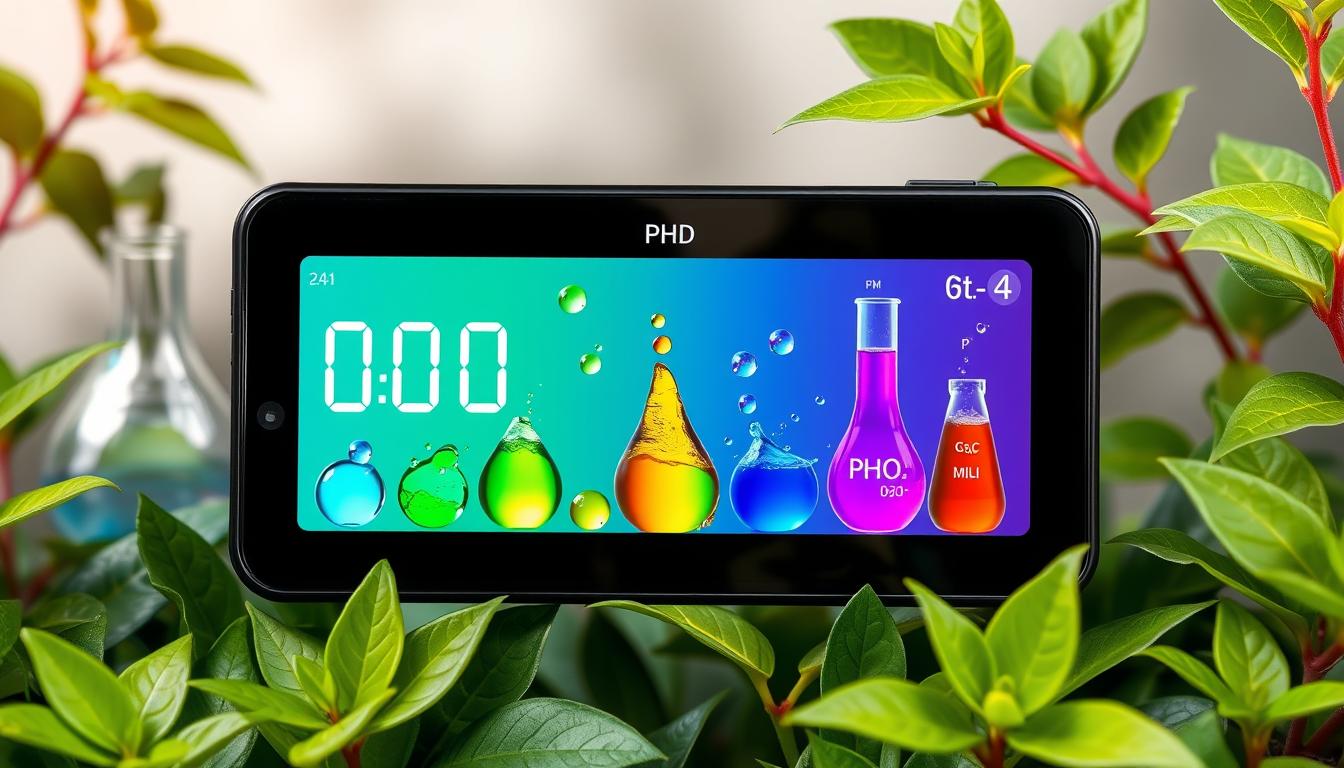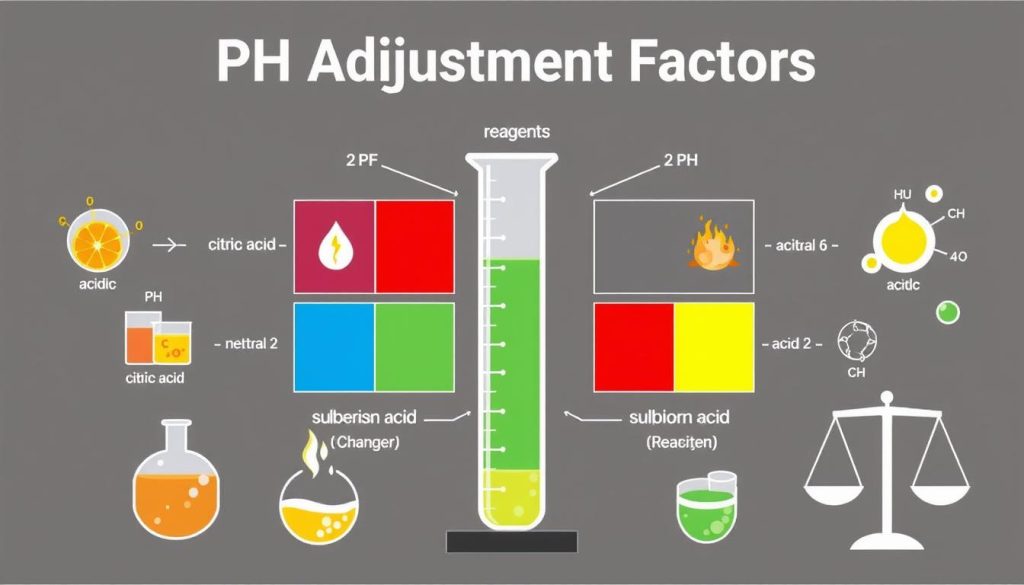
High pool pH can cause skin irritation and cloudy water. It also reduces chlorine’s effectiveness. To fix this, you need to add acid to lower the pH.
But how much acid should you use? A pH lowering acid calculator can help. It takes the guesswork out of pH adjustment.
This tool is useful for pool owners and water treatment pros. It calculates the exact amount of acid needed. You input the current pH, target pH, and water volume.
The calculator then determines how much acid to add. This prevents over or under-dosing, which can cause problems.
Understanding pH adjustment is valuable in many fields. It’s useful for pool maintenance, water treatment, and chemical processing. Students learning chemistry can also benefit from this knowledge.
Understanding pH and Acid-Base Chemistry
Grasping pH and acid-base chemistry is key to using a pH lowering acid calculator. This knowledge helps in adjusting pH for water treatment and industrial processes.
The pH Scale and Its Significance
The pH scale measures acidity or basicity of solutions. It ranges from 0 to 14, with 7 being neutral. Values below 7 are acidic, while those above are basic or alkaline.
pH is linked to hydrogen ion (H+) concentration. A lower pH means a higher concentration of H+ ions in the solution.
Acids, Bases, and Their Reactions
Acids donate protons (H+) to other molecules. Bases accept protons. When dissolved in water, acids split into H+ and their conjugate base.
HA ⇌ H+ + A-
An acid’s strength is measured by its acid ionization constant (Ka). This constant represents the equilibrium of the dissociation reaction.
Ka = [A-][H+] / [HA]
Bases dissolve in water to form hydroxide ions (OH-) and their conjugate acid. The base ionization constant (Kb) measures a base’s strength.
BOH ⇌ OH- + B+
Kb = [OH-][B+] / [BOH]
Importance of pH Control in Various Applications
Proper pH levels are vital in many fields. These include water treatment, industrial processes, and environmental monitoring.
- Water treatment: Ensuring safe drinking water and optimizing wastewater treatment processes
- Industrial processes: Controlling chemical reactions, preventing corrosion, and maintaining product quality
- Environmental monitoring: Assessing the health of aquatic ecosystems and monitoring pollution levels
Understanding pH and acid-base chemistry enables effective use of pH lowering acid calculators. This knowledge helps in making vital adjustments across various applications.
Using a pH Lowering Acid Calculator
A pH lowering acid calculator is essential for precise pH adjustments. It helps ensure accuracy in pool water, brewing water, and other applications. This tool considers various factors to perform exact calculations.
Factors Affecting pH Adjustment
Several key factors influence pH adjustment. These include initial pH, target pH, solution volume, and acid type. Each factor plays a crucial role in the process.
For pool water, total alkalinity (TA) is also important. TA acts as a buffer against pH swings. Ideal pool water TA ranges from 50 to 90 ppm.
Calculating the Amount of Acid Required
To find the exact acid amount needed, use this formula:
Acid Demand = (Target pH – Current pH) × 10
For example, let’s say our pool water pH is 7.8. We want to lower it to 7.4. Here’s the calculation:
Acid Demand = (7.4 – 7.8) × 10 = -4
The negative value shows we need to add acid. The amount depends on the product and its concentration.

Step-by-Step Guide to Using the Calculator
Let’s walk through using a pH lowering acid calculator:
- Measure the current pH with a reliable meter or test kit.
- Determine your target pH based on the application.
- Input current pH, target pH, and solution volume into the calculator.
- Select the appropriate acid or alkaline substance.
- The calculator will provide the recommended dosage.
- Carefully add the calculated amount, following safety precautions.
- Allow thorough mixing and wait before retesting.
- Make small adjustments if needed to reach the desired pH.
Using a reliable pH calculator removes guesswork from pH adjustment. It helps maintain optimal conditions in various applications. From swimming pools to brewing, precise pH control is now easier.
How Much Acid to Lower pH Calculator: Practical Applications
The “How Much Acid to Lower pH Calculator” is vital in industries needing precise pH control. For swimming pools, it helps maintain water clarity and comfort. Pool owners can determine the exact amount of chemicals needed for ideal pH levels.
Brewers use this tool to adjust water pH during the brewing process. The right mash pH improves starch conversion and enzyme activity. This leads to better flavor, clarity, and overall beer quality.
Wastewater treatment plants rely on this calculator to meet regulatory requirements. It helps determine the correct dosage of acids or bases for water neutralization. This ensures compliance with discharge standards.
Industrial processes also benefit from strict pH control. It’s crucial for chemical reactions, product stability, and equipment protection. The calculator allows operators to make accurate pH adjustments, improving process performance.
This tool is invaluable for professionals seeking efficient pH control. It simplifies complex calculations and saves time. The calculator helps users make data-driven decisions across various industries.







